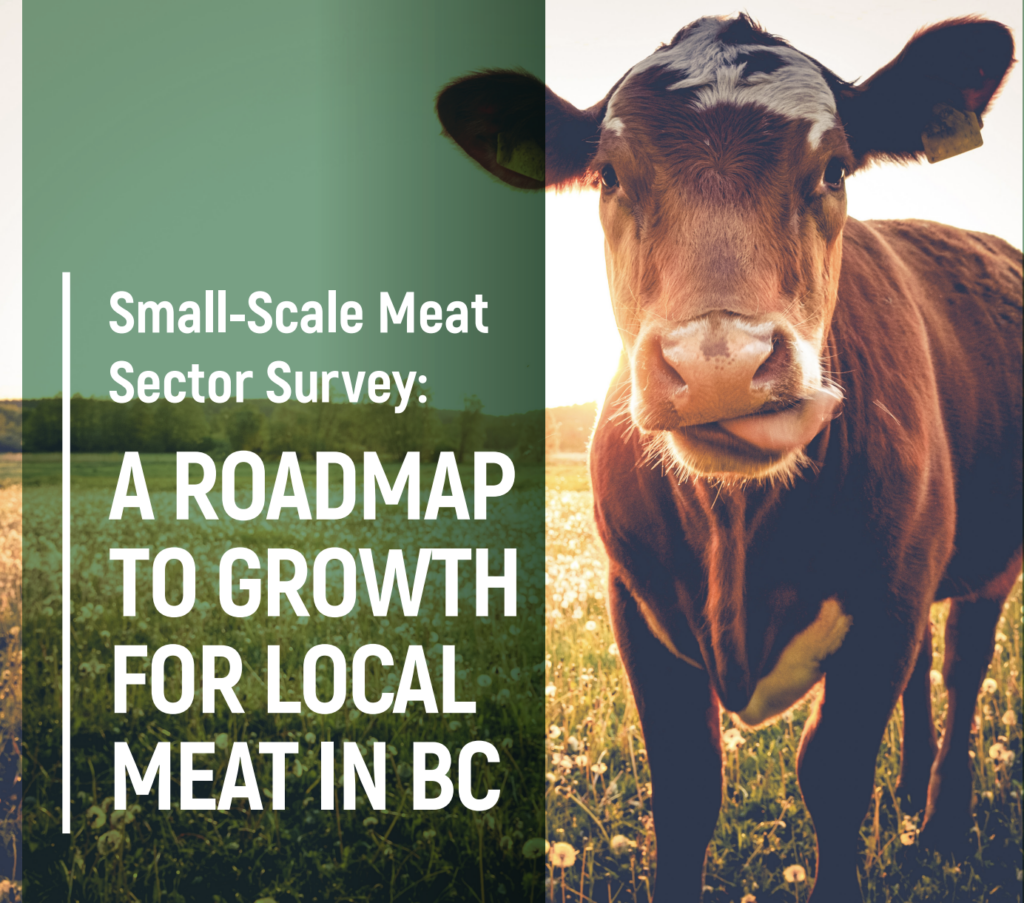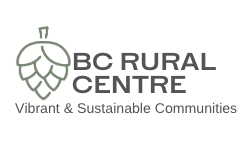
A Roadmap to Growth for Local Meat in BC
The Small-Scale Meat Producers Association has released its 2021 Small-Scale Meat Sector Survey. What was heard from this survey is that many small-scale producers are desperate to scale up their production to meet the increasing demand for higher welfare and locally raised meat and to realize economies of scale but are faced with an array of challenges that preclude their building viable businesses. The challenges of conforming to the many regulations enforced over the last few decades have had an undeniable impact on small family farms, including small-scale meat producers, that make up the large portion of the agricultural land in BC. With increased pressure from real estate speculation, rising operating and transportation costs, and volatile markets arising from a globalized food system, the challenge of producing local food on a relatively small scale has never been greater. However, recent occurrences of wildfires, floods and pandemics have brought to the forefront the perils of our dependency on centralized food distribution systems. It is of the utmost importance that we become fully aware of and understand the mode of operation, challenges experienced by and needs of the existing producers who represent so much potential for resiliency in our province.
The survey was conducted over the Summer and Fall of 2021. Responses were received from 708 operations, representing 2110 employed individuals across all 27 regional districts in the province. Following the online survey, 8 focus groups were held in all of BC’s agricultural regions.
It was heard loud and clear that access to slaughter, access to cut and wrap and low profitability are challenges that have created a market failure in the industry. This is characterized by many farms starting to raise livestock for meat then quitting the business in a short order or producers scaling back and not achieving growth despite strong and growing consumer demand for their products.
The lack of slaughter capacity has created a context for the widespread use of unlicensed slaughter in the province. 35% of all producers reported using unlicensed slaughter for meat destined to market at one point or another. We have found, however, that this method was rarely selected as the first choice by respondents. Many producers reported resorting to unlicensed slaughter when no other option was readily available. This is a very important factor to consider when evaluating meat regulations; if too restrictive, regulations may actually increase the amount of unlicensed slaughter in the province, thereby reducing overall food safety and oversight.
This report offers a road map to growth for local meat in BC including 17 recommendations to address the issues raised by the survey. It also includes regional reports that capture challenges and opportunities and offers recommendations for each region in the province.
In the face of food price inflation, more extreme weather events, global unrest and ecological crises, we need to preserve the diversity of our agricultural landscape in order to realize the resiliency afforded by strong regional food systems. The COVID-19pandemic and unprecedented natural disasters have demonstrated the importance of preserving and elevating these systems. Large food distribution networks and conglomerates are susceptible to supply chain disruptions that are not as acutely felt by small family farms. While the pandemic was impacting large meat plants across the country, small-scale meat producers were emptying their inventories at a record speed selling directly to neighbours and community members. This is what true food security, self-reliance and resilience looks like.
SSMPA Survey Highlights

Quotes
“This brilliant and timely report by SSMPA provides a comprehensive overview of the state of small-scale meat production in the province. The report is also loaded with brilliant graphics that cleverly convey key information in concise visuals. This will be an invaluable tool for understanding and then tailoring supports for place-based meat systems across British Columbia.”
-Abra Brynne, Executive Directory of the Central Kootenay Food Policy Council
“A thoroughly researched and well-presented report that outlines the growth potential for livestock and meat businesses in BC as they respond to climate change. Its recommendations support excellence in animal welfare and environmental stewardship through safe and healthy meat products raised and processed close to home.”
-Kathleen Gibson, manager of meat programs for the BC Food Processors Association 2005-2011
About SSMPA
The Small-Scale Meat Producers Association represents farmers and ranchers who are raising meat outside of the conventional, industrial system. SSMPA’s mission is to build greater stability for producers through a thriving small-scale meat industry producing well-raised, high-quality meat that contributes significantly to local food security. We are a registered non-profit society made up of primary producers as well as supportive individuals and organizations.
If you missed the webinar presentation of the survey, you can watch a recording of it.
This report offers a road map to growth for local meat in BC including 17 recommendations to address the issues raised by the survey. It also includes regional reports that capture challenges and opportunities and offers recommendations for each region in the province.
